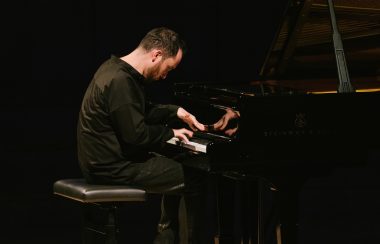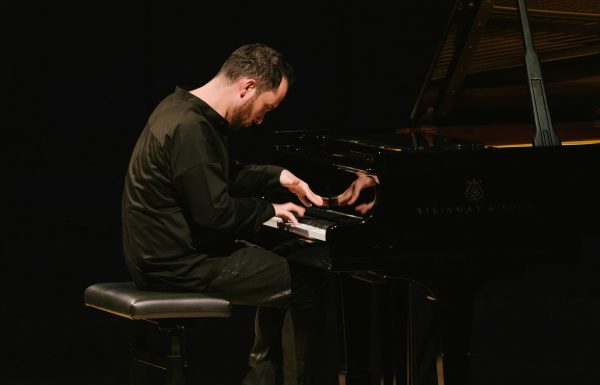
 Germany Dresden Music Festival 2024 [4] – Hindemith, Mahler, Beethoven: Igor Levit (piano). Kulturpalast Dresden, 22.5.2024. (MC)
Germany Dresden Music Festival 2024 [4] – Hindemith, Mahler, Beethoven: Igor Levit (piano). Kulturpalast Dresden, 22.5.2024. (MC)

Hindemith – Suite ‘1922’ for piano, Op.2
Mahler – Adagio from Symphony No.10 (arranged for piano by Ronald Stevenson)
Beethoven – Symphony No.3 in E-flat major, Op.55 ‘Eroica’ (arranged for piano by Franz Liszt)
At Dresden’s Kulturpalast Igor Levit’s piano recital was a puzzling one. The audience filled the hall which was surely testament to Levit’s mastery and reputation made with his performances of say J.S. Bach, Mendelssohn and Beethoven in particular. In fact, I have seen more than one reviewer choose Levit’s survey of the complete Beethoven piano sonatas as the outstanding set. The attraction cannot have been Levit’s programme comprising three largely unfamiliar works, hardly ever performed. I realise that Levit has toured with these works and made recordings of some. Nevertheless, I am always happy to explore unfamiliar works but all three on the same concert certainly surprised me.
Hindemith was a prolific composer often of an uneven quality and his considerable output for piano is no exception. Opening the recital was Hindemith’s Suite ‘1922‘ for piano, a satirical take on a baroque suite, which premiered in Berlin. In five movements, four are examples of contemporary dances plus a slightly longer central nocturne. At say two thirds through his performance Levit stopped playing, bowed his head, rubbed his eyes, then dropped his hands, said something, then some of the audience started clapping and Levit commenced playing. Make of that what you will. Nonetheless, the Suite ‘1922‘ was quite enjoyable and Levit played it superbly, treating it as if it was a masterwork.
Next came the most puzzling work of all, an arrangement for piano of the Adagio from Mahler’s Tenth Symphony from 1910. At his death Mahler had left the Tenth Symphony unfinished with only the Adagio practically complete and in performable state. I have heard several performances of the orchestrated Adagio and it sounds magnificent. Prepared in 1986, Ronald Stevenson, a pianist and composer, has done a splendid job with his transcription, yet why strip the orchestration off a work by Mahler, one of the greatest ever orchestrators. Although the chosen tempi felt too slow overall this was top-drawer playing by Levit.
After the interval it was clear that some audience members had not returned to their seats. Levit breezed onto the stage quickly playing a piano transcription of Beethoven’s Third Symphony the ‘Eroica‘ from 1804. This challenging piano transcription had been prepared by non-other than the great pianist and composer Franz Liszt. It was by some way the most successful work of the evening, a work benefiting from its much admired and well-known melodies. Producing a well-rounded sound, Levit pitted tranquillity and vigour against the poetic and percussive. Best of all was the Marcia funebre movement that Levit played to striking effect on his Steinway. As an aside, during the period 1800-24 Liszt made piano transcriptions of all Beethoven’s nine symphonies.
This artist-led piano recital comprised a programme not to everyone’s taste. Yet it provided an opportunity to hear unfamiliar works together with Igor Levit’s outstanding playing.
Michael Cookson
